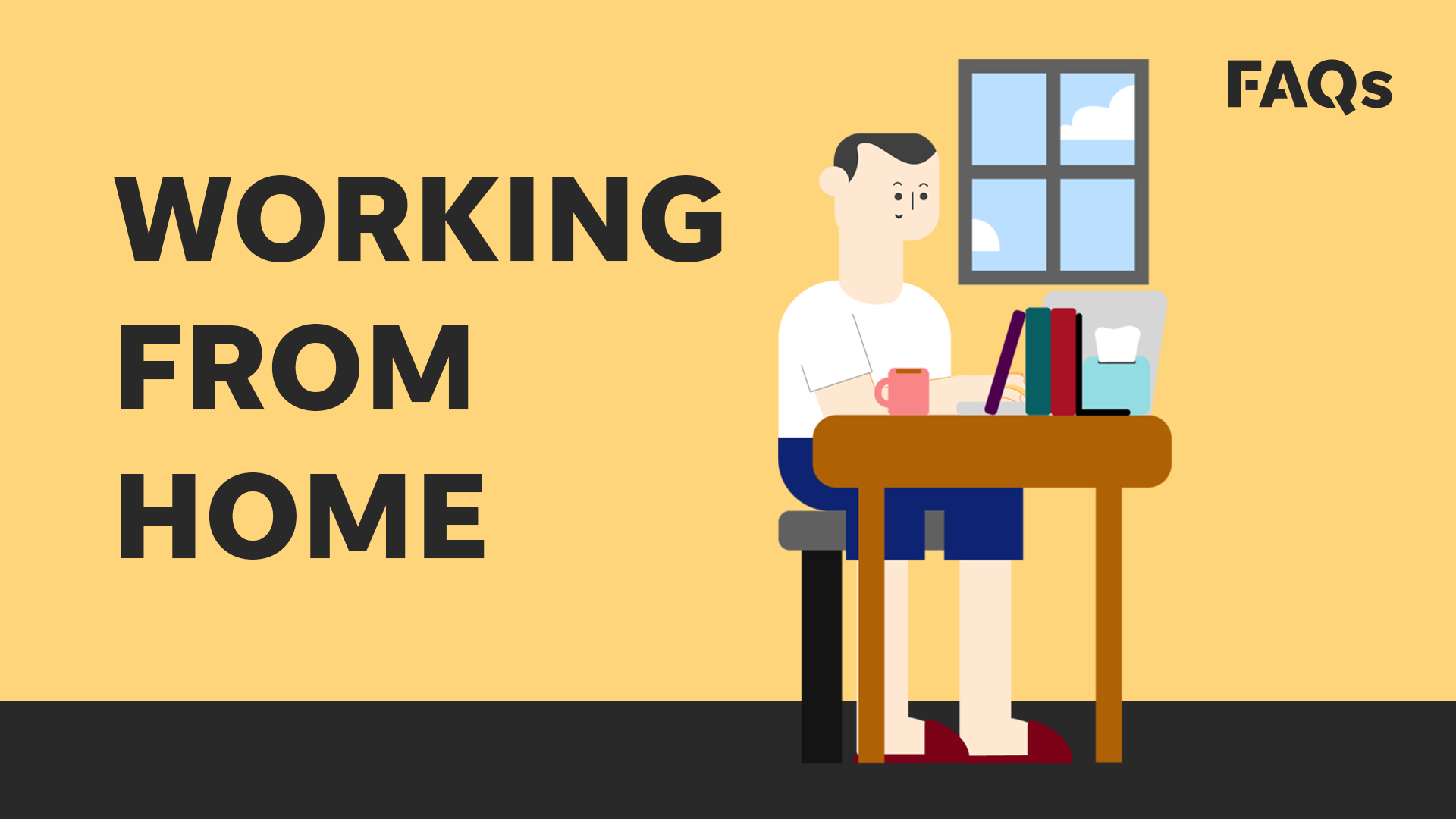Τα εμβολιαστικά προγράμματα προχωρούν, αυξάνεται το ποσοστό του πληθυσμού που αναπτύσσει ανοσία και αναστέλλονται τα περιοριστικά μέτρα. Φαίνεται, όμως, πως η τηλεργασία ήρθε για να μείνει και στη μετά την πανδημία περίοδο. Είναι ενδεικτική η στάση των τεχνολογικών κολοσσών της Wall Street που σε μεγάλο βαθμό επιλέγουν ένα υβριδικό μοντέλο, με την τηλεργασία κεντρικό στοιχείο του. Η Facebook έδωσε την ελευθερία σε όσους υπαλλήλους της έχουν τη δυνατότητα να εργάζονται με τηλεργασία. Τα γραφεία της θα ανοίξουν τον Οκτώβριο και ακόμη και όσοι οφείλουν να έχουν φυσική παρουσία εκεί θα μπορούν να επιλέγουν να εργάζονται εξ αποστάσεως τον μισό χρόνο. Η Amazon ανακοίνωσε την περασμένη εβδομάδα με εσωτερικό σημείωμα ότι οι εργαζόμενοι στα γραφεία και στο τμήμα τεχνολογίας μπορούν να εργάζονται δύο φορές την εβδομάδα από το σπίτι τους.
Οι περισσότεροι από τους 60.000 υπαλλήλους της θα μπορούν τέσσερις εβδομάδες τον χρόνο να εργάζονται εξ αποστάσεως. Η Apple, αντιθέτως, ανακοίνωσε ότι η ανθρώπινη αλληλεπίδραση δεν μπορεί να υποκατασταθεί από τις διαδικτυακές συναντήσεις και καλεί τους υπαλλήλους της να επιστρέψουν στα γραφεία έως τον Σεπτέμβριο, αλλά σε ορισμένες κατηγορίες επιτρέπει την τηλεργασία δύο ημέρες την εβδομάδα. Η Alphabet, μητρική της Google, ανακοίνωσε ότι το 20% των εργαζομένων θα εργάζεται από το σπίτι, όταν ανοίξει τα δικά της γραφεία αργότερα στη διάρκεια του τρέχοντος έτους. Αν και αναπροσαρμόζει το καθεστώς που έδινε στους υπαλλήλους της το ελεύθερο να επιλέξουν με ποιον τρόπο θα εργάζονται, συνεχίζει να διατηρεί και την επιλογή της τηλεργασίας. Η Google σχεδιάζει ένα νέο καθεστώς, με το 60% του προσωπικού να εργάζεται από το γραφείο κάποιες ημέρες την εβδομάδα, το 20% να έχει φυσική παρουσία στις νέες εγκαταστάσεις της και το υπόλοιπο 20% να εργάζεται με τηλεργασία. Δίνει πάντως σε όλο το προσωπικό τη δυνατότητα να εργάζεται από το σπίτι μέχρι τον Σεπτέμβριο.
Την ίδια στιγμή, νέα μελέτη της εταιρείας Bartleby, την οποία δημοσιεύει ο Economist, παρουσιάζει μια ενδιαφέρουσα διάσταση της τηλεργασίας που φέρει τους εργαζόμενους να αυξάνουν τις ώρες εργασίας τους, αλλά όχι και την παραγωγικότητά τους. Σύμφωνα με την εν λόγω έρευνα, στην οποία έλαβαν μέρος περισσότεροι από 10.000 εργαζόμενοι σε μία ασιατική τεχνολογική εταιρεία την περίοδο από τον Απρίλιο του 2019 έως τον Αύγουστο του 2020, οι υπάλληλοι της εταιρείας εργάστηκαν σκληρά. Οι συνολικές ώρες εργασίας τους ήταν 30% περισσότερες απ’ ό,τι πριν από την πανδημία, συμπεριλαμβανομένης και της αύξησης 18% της εργασίας εκτός του κανονικού ωραρίου τους. Ωστόσο, παρά τον έξτρα χρόνο εργασίας, η παραγωγή μειώθηκε κατά 20%, καθώς οι υπάλληλοι αφιέρωσαν πολύ χρόνο στις μεταξύ τους συνεννοήσεις.
Working from home post-COVID-19? Facebook, Apple, Twitter and Microsoft embracing remote work

OAKLAND, Calif. – For a preview of the future of office work, watch how the biggest tech companies are preparing for a post-pandemic world.
Silicon Valley and Seattle giants – Facebook, Microsoft, Apple, Twitter – were the first to send their employees home as the virus spread to the U.S. Now they're among the last to return them to the office. Some of their employees might never go back.
The companies are studying what their highly-paid, highly-valued employees want, using their own technology to make remote work easier and looking to hire new workers outside of big city hubs. It's a potentially huge turnaround after years in which companies like Amazon and Google chased scarce tech talent by opening or expanding offices in hip urban locations such as San Francisco and New York.
Such a shift might also amount to a repudiation of the notion that creative work demands corporate campuses reminiscent of college, with free food, ping pong tables and open office plans designed to encourage unplanned interactions.
The result could re-imagine not just Silicon Valley but other cities as the companies expand hiring in places like Atlanta, Dallas and Denver, where Facebook plans to open new "hubs" for its new, mostly remote hires.
Change won't happen quickly, though. "We want to make sure we move forward in a measured way," said Facebook CEO Mark Zuckerberg during an employee town hall Thursday that was broadcast live on his Facebook page.
A downside to working at home?: Facebook employees could receive pay cuts as they continue to work from home
Work from home 'forever'?: Twitter is encouraging employees to do so

Facebook, which has nearly 45,000 employees, is looking five to 10 years down the line as it plans for more remote work, even when COVID-19 is no longer a threat that requires most of its employees to work from home. Since the coronavirus has upended work and office life, even companies with fewer resources and slower-moving cultures are likely to follow.
"Many companies are learning that their workers are just as or even more productive working from home," said Andy Challenger, senior vice president of staffing firm Challenger, Gray & Christmas.
Zuckerberg said a Facebook employee survey found that about 20% of workers were "extremely or very interested" in moving to full-time remote work after virus-related restrictions are lifted. Another 20% were "somewhat" interested and the largest group wanted flexibility, with some remote and some in-office work. Eventually, Zuckerberg said, as many as half of Facebook's workers could be working remotely. But he cautioned that this is years, perhaps even a decade, away.
Twitter went even further, announcing last week that it will allow some employees to work from home on a permanent basis, a plan CEO Jack Dorsey hatched before the coronavirus. His other company, Square, which like Twitter is based in San Francisco, is doing the same. Some new U.S.-based job listings for Twitter give the option for hires to work in cities like San Francisco, New York and Washington D.C. but also remotely full time anywhere in the country.




0 Post a Comment:
Δημοσίευση σχολίου